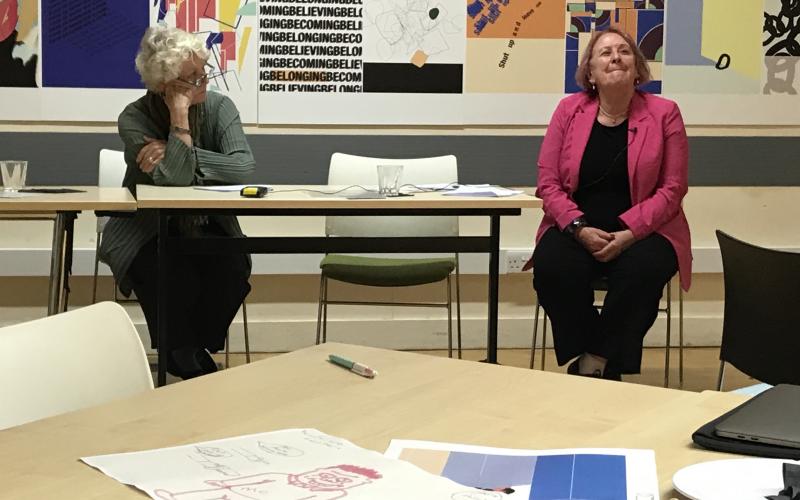The sense of confidence to take part in the world
By Andy Smart
“The biggest poverty of all is the poverty of hope.”
-Dame Mary Marsh –
I have an instinctive reaction against tidy acronyms and alliterations, as well as against assigning numbers to fluid concepts. Too often these acronyms and numbers seem to belong to the world of marketing, such as the five P’s (Product, Price, Promotion, Place, and People) or the suggestion that working memory can only cope with seven items (plus or minus 2!) of new information. But sometimes this is just how words land. Against my better judgement, I realised a while ago that the three dimensions of what I believe to be important in education – pre-conditions, purpose, and process – form yet another alliteration. These three P’s can be seen, misleadingly, as a sequence (after all, anything with ‘pre-’ is likely to come first), but, as with so much in the world of education, the reality is not so tidy. The three elements, whether viewed from the perspective of a policy-maker, school leader, or teacher, all overlap, intertwine, and jostle with each other.

Karen Seashore (L) and Kathryn Riley (R), speaking at the colloquium
This month, I attended a wonderful colloquium at UCL Institute of Education, organised by the inspirational Kathryn Riley.1 Also invited were Karen Seashore, a US specialist in school improvement and school leadership, as well as Mary Marsh, former CEO of the NSPCC2, professors of criminology, past and current headteachers in London schools, and several of Kathryn’s doctoral students. The theme of the evening was ‘The School Belonging Curriculum: Why do schools need to be places of belonging? What needs to change? And how?’
Although the colloquium was focused on the English education system, there was much that resonated for systems elsewhere. Professor Riley’s work centres on belonging and agency, which are essentials in all contexts: belonging is an essential pre-condition in education settings. It is also a purpose and part of a process.
For Kathryn Riley and other school leaders at the event, the main setting of the conversation was the school and classroom: belonging as non-exclusion, whether from a school culture or from peer groups, and as a result of caring for and caring about. Belonging is relational. For national curricula in the centralised systems found in most LMICs, belonging is often presented as national identity, as part of a ‘top–down’ process.
Belonging is of course part of identity. But children’s sense of identity is inseparable from the diversity in which they find themselves. This is the difference between citizenship as civics, with its knowledge of systems and laws, and citizenship as belonging, where diversity is the glue that holds societies together. As another speaker put it, ‘Listening to differences shapes a community.’
Belonging includes voice and choice. As one of the headteachers said, ‘Children need to know they have a voice. And if they don’t want to or cannot speak, they need to know that someone will notice.’
On the even wider stage, Global Citizenship represents another dimension of belonging to a fast-changing, globalised world with all its societal and environmental pressures.
A participant asked, ‘How do we want to be in the world?’, reminding us of Gert Biesta’s work,3 ‘where the world does not appear as material for our understanding and sense-making, but actually may be asking something from us’ (my italics). This is perhaps where the deepest purpose is located, in the essential pre-conditions: without a sense of belonging to their immediate community and their school, children may well struggle to be in the world. There is a thread that runs from the child’s identity, to the community in which they live, and to the wider world.
As Kathryn Riley put it at the conclusion of the event, education is about nurturing children’s confidence to ‘take part in the world’.
1 Kathryn’s latest book, Compassionate Leadership for School Belonging, published by IOE Press, is available as open access: https://www.uclpress.co.uk/collections/education/products/171324
2 The National Society for the Prevention of Cruelty to Children
3 Gert Biesta, World-Centred Education: A View for the Present (2021)